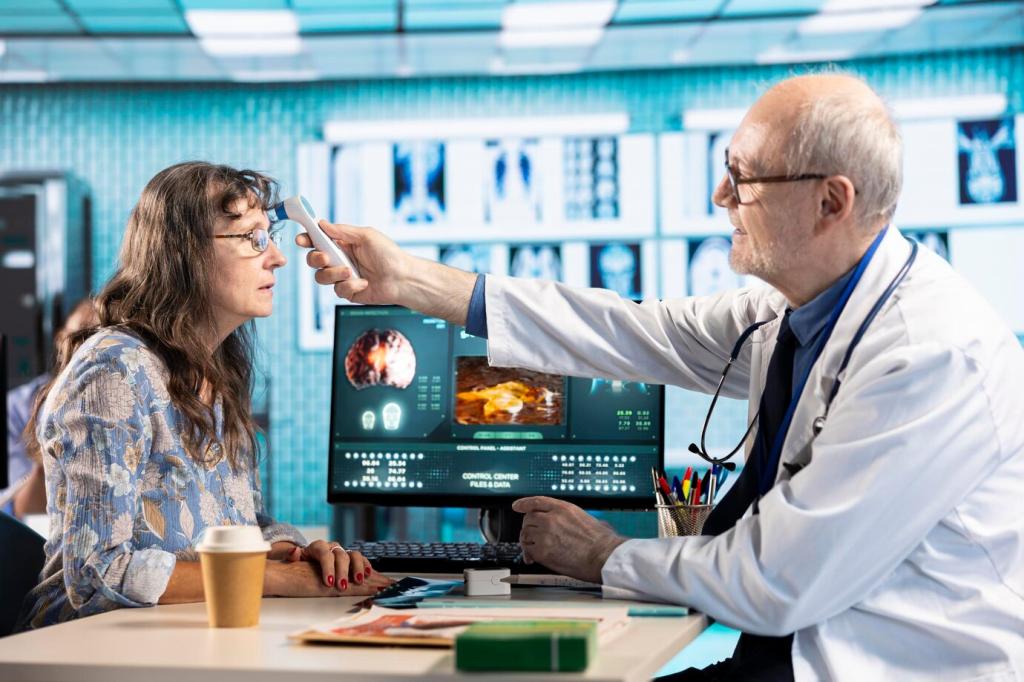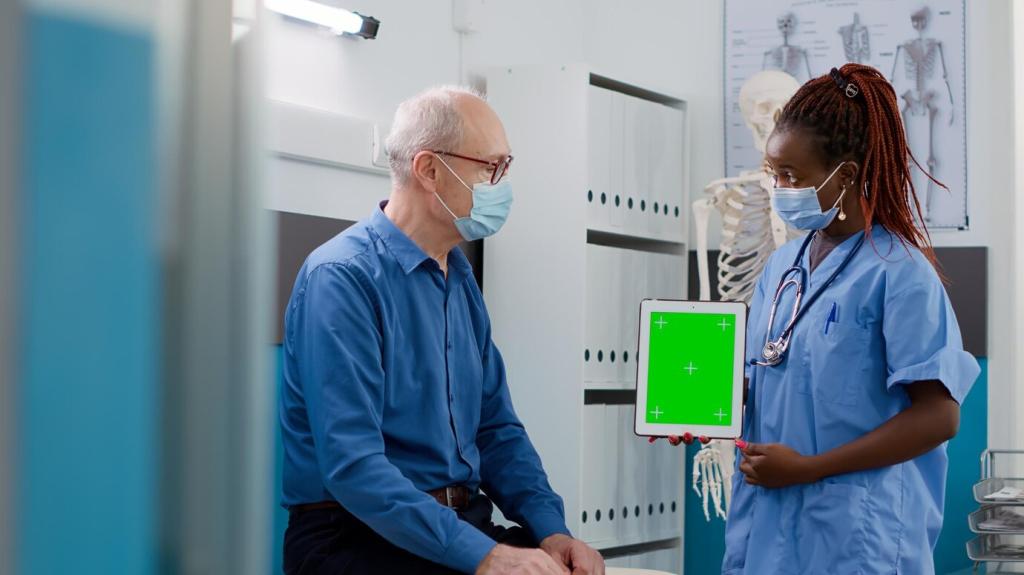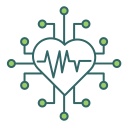AI-Driven Innovations in Patient Care
AI-driven technologies are revolutionizing the landscape of patient care, offering unprecedented opportunities for personalization, efficiency, and improved health outcomes. From enhancing diagnostics to empowering remote care, artificial intelligence is at the heart of this transformative era. Through cutting-edge algorithms, machine learning, and real-time data analysis, healthcare providers can now deliver smarter, more responsive care than ever before. Explore how these advancements are shaping the patient experience and setting new standards for health services globally.
Enhanced Imaging Interpretation
AI-powered imaging solutions are dramatically improving the accuracy of radiology, pathology, and other diagnostic specialties. These systems examine medical images like X-rays, CT scans, and MRIs to detect conditions such as tumors or fractures with remarkable precision. By reducing the risk of human error and streamlining analysis, AI enables clinicians to make faster, more informed decisions. This not only improves patient outcomes but also allows for earlier detection and intervention in potentially life-threatening situations, particularly where specialist expertise may be limited.
Predictive Analytics for Early Intervention
Predictive analytics, driven by AI, is transforming how risks are assessed and managed in patient care. These tools sift through patient histories, lab results, and even genetic information to forecast the likelihood of developing specific conditions, such as strokes or heart disease. By pinpointing individuals at higher risk, medical teams can initiate preventive measures or tailored interventions earlier, reducing hospitalizations and improving long-term health. The ability to forecast adverse events empowers both patients and providers with proactive strategies to manage wellness.
Personalized Treatment Recommendations
Through deep learning algorithms, AI systems can suggest treatment options uniquely suited to each patient. By analyzing factors like genetics, lifestyle, and existing conditions, these platforms propose medical therapies with the highest likelihood of effectiveness and the lowest risk of adverse effects. This shifts healthcare from a one-size-fits-all approach to a precision medicine model. Patients benefit from increased safety, better outcomes, and often less trial-and-error with medications and therapies—a win for both healthcare professionals and those they serve.

AI-Powered Virtual Assistants
Virtual assistants powered by artificial intelligence provide patients with 24/7 access to health information, appointment scheduling, and medication reminders. These intelligent chatbots and voice-activated helpers answer health-related questions, guide patients through care protocols, and facilitate communication with care teams. With empathetic and conversational user interfaces, virtual assistants break down barriers to access and ensure patients feel supported and informed at all times, bridging gaps that often exist in traditional care environments.

Tailored Patient Communication
AI enables healthcare providers to deliver communication that is personalized, timely, and relevant to each patient. Through sophisticated analysis of preferences, behaviors, and medical history, AI systems generate messages that resonate, whether it’s education about a diagnosis, reminders to take medication, or encouragement during recovery. This approach reduces information overload, increases comprehension, and motivates patients to stay engaged in their care, ultimately leading to higher adherence and more successful health outcomes.

Streamlined Appointment and Follow-Up Processes
Intelligent scheduling tools use artificial intelligence to automate and optimize the management of appointments and follow-up care. These platforms not only reduce administrative burdens for providers but also minimize wait times and eliminate scheduling conflicts for patients. By sending reminders and rescheduling suggestions, AI ensures that patients attend necessary appointments and follow-through with recommended post-visit instructions. This efficiency keeps treatment plans on track and improves the overall patient experience.
Empowering Remote Monitoring and Telehealth
AI-powered devices and wearables are transforming how patients and clinicians approach chronic disease management and wellness. These technologies capture and analyze real-time data like heart rate, blood sugar, and physical activity, alerting both patients and providers to potential issues before they escalate. The continuous feedback loop allows clinicians to adjust treatment plans proactively and empowers patients to make informed decisions about their daily habits. This immediate insight fosters a culture of prevention and supports timely intervention, keeping individuals healthier and reducing the need for emergency care.
Artificial intelligence enhances the telehealth experience by streamlining documentation, triage, and care coordination during virtual visits. Advanced AI algorithms support clinicians with instant access to relevant patient information and suggest clinical questions to ensure comprehensive assessments. For patients, this means more efficient, focused consultations and fewer barriers to accessing specialized expertise. By bridging the gap between in-person and digital care, AI makes remote interactions more productive, accurate, and satisfying for all involved.
Advanced AI platforms automatically analyze incoming patient data to detect abnormalities or warning signs. When such triggers are identified, the system generates alerts for both patients and healthcare teams, sometimes even recommending specific actions. This automation not only speeds up response times but can also avert complications or hospitalizations by catching problems early. The result is a proactive and dynamic remote care environment where patient safety is significantly enhanced.
